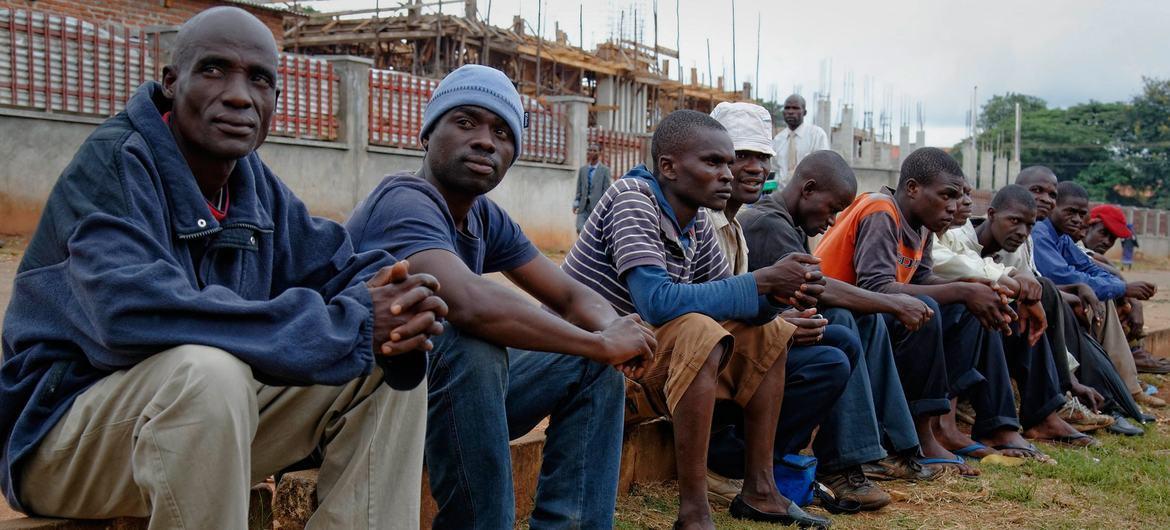Africa-Press – Eritrea. The US administration has turned to the African continent as another destination to deport migrants who it says are convicted criminals.
While dozens have been flown to countries in Central and South America, 12 men from countries including Mexico, Myanmar and Yemen were last month sent to Eswatini and South Sudan. One South Sudanese was also flown back home.
Other African countries are also reportedly being courted by the US to accept people, whose home countries will not take them back, according to the US authorities.
President Donald Trump’s mass deportation pledge drew support during his campaign last year. But UN rights experts and human rights groups are alarmed by what has happened and argue that these removals to a nation that is not the migrant’s place of origin – known as third countries – could violate international law.
Is third-country deportation legal in international law?
Third-country deportations can be legal – but only under certain conditions.
“The whole concept of third-country removal has to be seen in light of the broader concept of asylum,” says Prof Ray Brescia, from the Albany Law School in the US.
“There is a principle in international law – non-refoulement – which means you are not supposed to return someone to their home country if it’s unsafe for them, so a third country could provide a safe option,” he says.
This principle not only applies to the migrant’s home country but also to any third country they might be sent to.
If that country is unsafe, deportation may violate international law – as when the UK’s Supreme Court blocked the British government’s plan to send asylum seekers to Rwanda in 2023.
Migrants must have the chance to challenge deportation if the destination is dangerous, based on evidence from credible sources like UN reports or US State Department findings. Courts are expected to assess this risk carefully.
“The courts should examine what kind of legal status migrants will have, if they’ll be detained, and what kind of housing is provided,” says Dr Alice Edwards, the UN Special Rapporteur on Torture and other Cruel, Inhuman or Degrading Treatment or Punishment.
But many migrants struggle to access legal support in time.
“It takes significant effort and access to a lawyer who can act quickly,” says Prof Brescia.
“That legal route may not be available to everyone.”
Do the Eswatini and South Sudan deportations violate international law?
“They certainly do in two respects,” says Prof David Super, from Georgetown University Law Center.
“There’s no evidence the US is giving people a chance to challenge their deportation, and they’re not permitted to send people to countries where they might face oppression.
“South Sudan and Eswatini have serious questions about their human rights records,” he tells.
When the migrants were first bound for South Sudan in May, a legal challenge was filed in a US district court after the flight had already taken off.
The judge ruled that the attempts to deport the men had violated his order that migrants must be allowed to challenge their removal to third countries.
The plane was rerouted to Djibouti, on the East African coast, where the men were reportedly held in a shipping container on a US military base while the case was heard.
The case was referred to the Supreme Court which allowed the deportations to proceed but did not specify whether South Sudan was deemed a safe place for the migrants.
“What we’ve seen in similar cases is that people are often denied legal help when they need it, and proceedings begin far too late,” says Dr Edwards.
“In this case, they were already en route to a US military base and that’s deeply problematic.”
She adds that the courts must remain apolitical, especially when basic rights are at stake.
Source: Nilepost News
For More News And Analysis About Eritrea Follow Africa-Press







